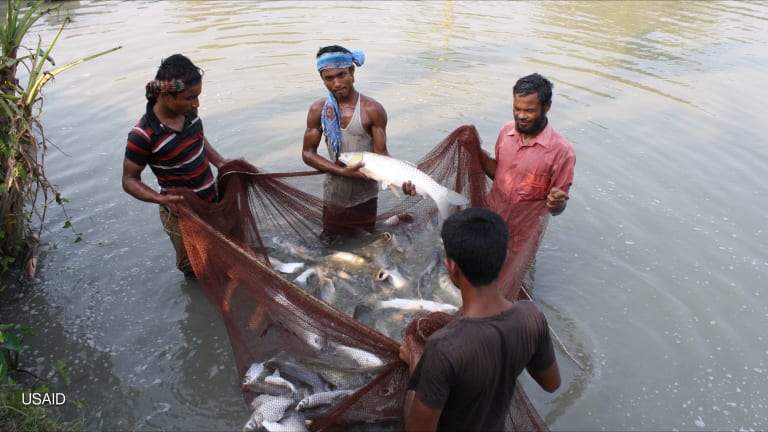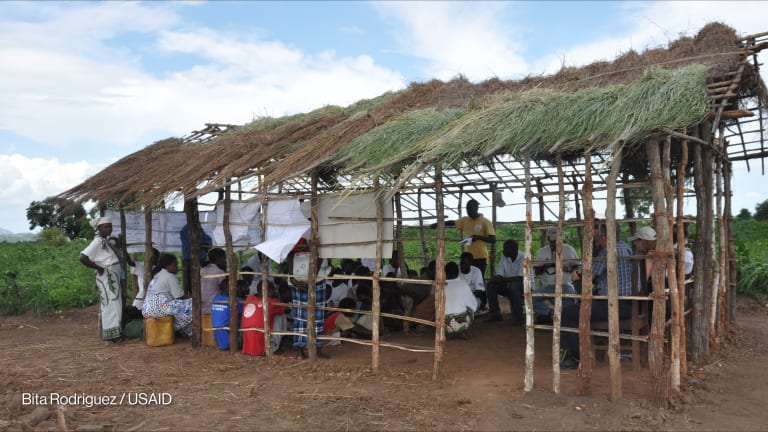
U.S. Secretary of State Antony Blinken urged governments and international institutions to take action to avert “the greatest global food security crisis of our time” in a United Nations ministerial meeting on Wednesday in New York.
Get the inside track on how agriculture, nutrition, sustainability, and more are intersecting to remake the global food system in this weekly newsletter.
Russia’s invasion of Ukraine and the effect it's having on food, fertilizer, and fuel prices globally was condemned by many Western nations during the meeting, convened by the United States while it holds the U.N. Security Council presidency in May. Low-income countries pleaded for more access to financing, commodities, and technical assistance to feed their populations and help them build resilience to longer-term shocks.
Blinken outlined a series of international actions he said must be taken to help countries cope.
“Those with financial resources need to step up and do it fast,” as humanitarian organizations struggle to meet current food security needs, he said. He announced an additional $215 million in emergency food assistance from the U.S.
“Governments and international organizations can also come together to compel the Russian Federation to create corridors so that food and other vital supplies can safely leave Ukraine by land or by sea,” Blinken said. “There are an estimated 22 million tons of grain sitting in silos in Ukraine right now, food that could immediately go toward helping those in need if it can simply get out of the country.”
Ukraine and Russia together produce nearly a third of the world’s wheat and barley and half of the global supply of sunflower oil. Russia and Belarus are the world’s number two and three producers of key fertilizer ingredient potash.
Countries must be incentivized to ramp up fertilizer production to meet the global demand, Blinken said, noting that sanctions were not responsible for shortages. Fertilizer and food commodities are exempt from sanctions on Russia, so their export is not restricted under the international measures.
Investment in agricultural capacity and resilience must be increased, and international financial institutions should help the most affected “bear the colossal impact of this crisis,” he said.
The U.S. Department of Treasury earlier on Wednesday announced support for a food security action plan developed by international financial institutions detailing how they will scale up financing.
Blinken also said the U.S. would provide additional insurance for American farmers willing to “shoulder added risk” and double crop, growing two crops in the same field in the same year.
Many countries called on world governments not to ban exports of key commodities, while India defended taking such action last week on wheat.
“Governments and international organizations can … compel the Russian Federation to create corridors so that food … can safely leave Ukraine by land or by sea.”
— Antony Blinken, secretary of state of the United States“In order to manage our own overall food security and support the needs of neighboring and other vulnerable developing countries, we have announced some measures regarding wheat exports,” said Vellamvelly Muraleedharan, Indian minister of state for external affairs.
“Let me make it clear these measures allow for export on the basis of approvals to those countries who are required to meet their food security demands. This will be done on the request from the concerned governments. Such a policy will ensure that we will truly respond to those who are most in need.”
Yemen’s Minister of Foreign and Expatriates Affairs Ahmed Awad Bin Mubarak asked that his country be prioritized for funding to assist with wheat imports, while Lebanon’s Minister of Foreign Affairs and Emigrants Abdallah Bou Habib called for assurances Lebanon could import it at reasonable prices. Both countries have seen wheat costs soar, putting bread out of reach of many people.
Kenya’s foreign affairs secretary expressed concerns that increased food insecurity could escalate conflict in Africa.
“What we are witnessing … is a threat conflation in Africa at unprecedented levels and it is creating circumstances for real crisis on our continent. It is not sufficient for the status quo to continue,” Raychelle Omamo said. “The food crisis in Africa may lead to direct reversals in development, political instability, and the escalation of conflicts at all levels.”
U.N. Secretary General António Guterres said most low-income countries have no fiscal space to prevent the worst of food insecurity on their own after dealing with a series of ongoing crises. Russia’s invasion of Ukraine had amplified emergencies like climate change, COVID-19, and inequality, he said.
“It threatens to tip tens of millions of people over the edge into food insecurity, followed by malnutrition, mass hunger and famine, in a crisis that could last for years,” Guterres said.
“Ending hunger is within our reach. There is enough food in our world now for everyone, if we act together. But unless we solve this problem today, we face the specter of global food shortages in the coming months.”









